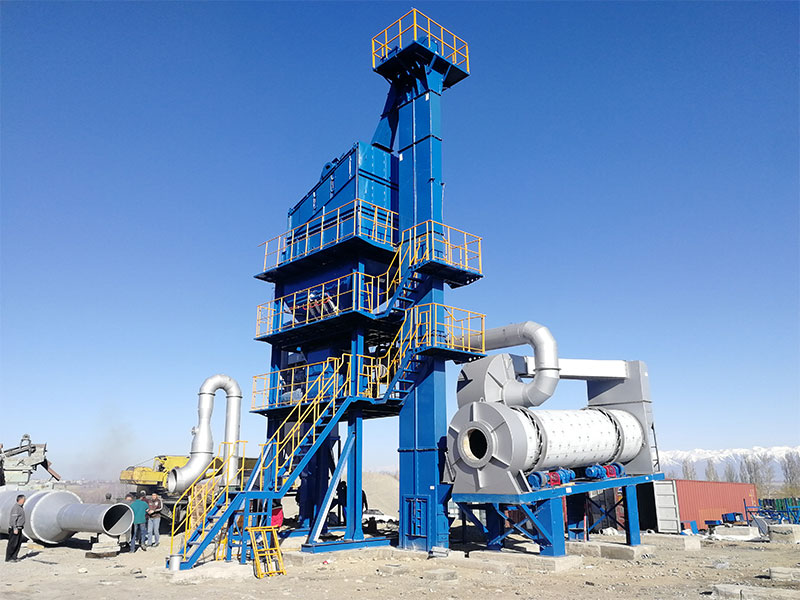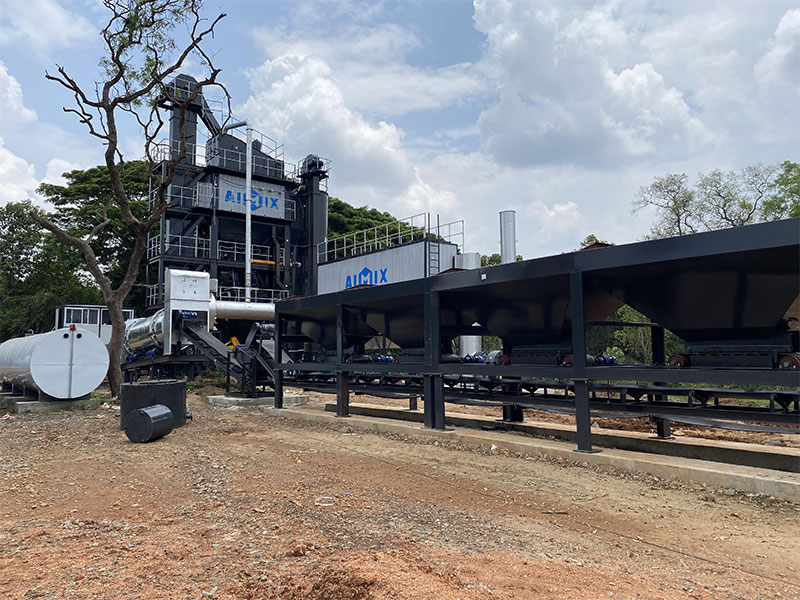Asphalt mixing plants play a crucial role in constructing roads, highways, and infrastructure projects worldwide. The quality of asphalt produced directly impacts the durability and longevity of these constructions. Therefore, maintaining stringent production quality control measures within asphalt mixing plants is paramount.
Importance of Quality Control in Asphalt Mixing Plants
Quality control in asphalt mixing plants ensures that the produced asphalt meets specified standards and requirements. It involves monitoring and managing various parameters throughout the production process to achieve consistency and reliability in the final product. Effective quality control for the small asphalt batch plant offers several benefits:

Durability: High-quality asphalt ensures the longevity and durability of road surfaces, reducing the frequency of repairs and maintenance.
Safety: Properly mixed asphalt provides superior skid resistance and traction, enhancing road safety, especially during adverse weather conditions.
Cost-effectiveness: Quality control minimizes material wastage and rework, resulting in cost savings over the project’s lifecycle.
Compliance: Adhering to quality control standards ensures compliance with regulatory requirements and industry specifications, mitigating potential legal and financial risks.
Key Components of Production Quality Control
Raw Material Testing:
Quality control begins with the thorough testing of raw materials such as aggregates, bitumen, and additives. These tests assess the material’s properties, including gradation, moisture content, viscosity, and temperature susceptibility, to ensure they meet prescribed specifications.
Process Monitoring:
Continuous monitoring of the mixing process is essential to maintain uniformity and consistency in asphalt production. Modern mobile asphalt mix plants are equipped with advanced control systems that regulate parameters such as temperature, mixing time, and asphalt content to optimize performance and minimize variability.

Quality Assurance Testing:
Regular sampling and testing of asphalt mixtures throughout the production process validate the quality and performance characteristics of the final product. Tests such as Marshall stability, compaction density, and volumetric analysis assess the asphalt’s structural integrity, resistance to deformation, and moisture susceptibility.
Calibration and Maintenance:
Calibration of equipment and machinery, including weigh scales, temperature sensors, and mixing units, ensures accurate measurement and control of production parameters. Routine maintenance and servicing of drum mix asphalt plant components prevent malfunctions and breakdowns that could compromise product quality.
Strategies for Enhancing Quality Control
Investment in Technology:
Embracing technological advancements such as automated control systems, real-time monitoring devices, and data analytics software enhances the efficiency and accuracy of quality control processes. These tools enable the proactive identification of deviations and facilitate timely corrective actions.
Employee Training and Skill Development:
Providing comprehensive training programs for plant operators, technicians, and quality control personnel equips them with the knowledge and skills to effectively manage production processes and interpret test results. Continuous learning ensures that staff remain updated on industry best practices and emerging technologies.
Collaboration and Knowledge Sharing:
Establishing partnerships with industry stakeholders, research institutions, and regulatory agencies fosters collaboration and knowledge exchange. Participation in conferences, workshops, and technical seminars facilitates the dissemination of innovative practices and facilitates continuous improvement in quality control standards.
Performance Monitoring and Feedback:
Implementing robust performance monitoring mechanisms enables the systematic evaluation of quality control processes and identifies areas for optimization. Soliciting feedback from customers, contractors, and end-users provides valuable insights into product performance and customer satisfaction levels.
Conclusion
Effective production quality control is essential for ensuring the reliability, safety, and sustainability of asphalt pavements. By implementing comprehensive quality control measures, asphalt mixing plants can consistently deliver high-quality products that meet or exceed industry standards and customer expectations. Continuous innovation, collaboration, and commitment to excellence are key drivers for enhancing quality control practices and driving positive outcomes in asphalt production. View more details here: https://aimixglobal.com/asphalt-mixing-plant-for-sale/.
